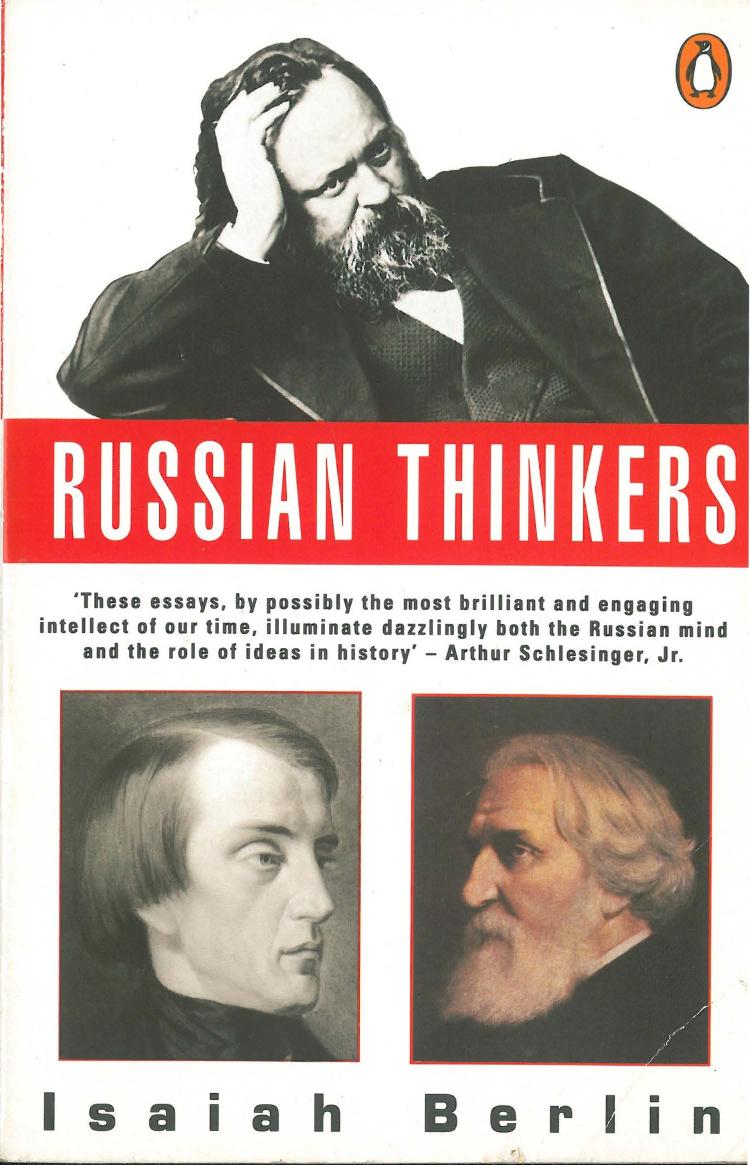Russian Thinkers by Isaiah Berlin

Author:Isaiah Berlin [Berlin, Isaiah]
Language: eng
Format: epub, pdf
ISBN: 9780141393179
Publisher: Penguin Books Ltd
Published: 2017-05-23T00:00:00+00:00
Belinsky was not torn between incompatible ideals. He was an integrated personality in the sense that he believed in his own feelings, and was therefore free from the self-pity and the sentimentality which spring from indulgence in feelings which one does not respect in oneself. But there was a division within him which arose from a simultaneous admiration for Western values and ideals, and a profound lack of sympathy with, indeed dislike and lack of respect for, the characters and form of life of the Western bourgeoisie and typical Western intellectuals. This ambivalence of feeling, created by history – by the social and psychological conditions which formed the Russian intellectuals in the nineteenth century – was inherited by and became prominent in the next generation of radical intellectuals – in Chernyshevsky and Nekrasov, in the populist movement, in the assassins of Alexander II, and indeed in Lenin too, Lenin who could not be accused of ignoring or despising the contributions of Western culture, but felt far more alien in London or Paris than the more ‘normal’ type of international exile. To some degree this peculiar amalgam of love and hate is still intrinsic to Russian feelings about Europe: on the one hand, intellectual respect, envy, admiration, desire to emulate and excel; on the other, emotional hostility, suspicion and contempt, a sense of being clumsy, de trop, of being outsiders; leading, as a result, to an alternation between excessive self-prostration before, and aggressive flouting of, Western values. No visitor to the Soviet Union can have failed to remark something of this phenomenon: a combination of intellectual inadequacy and emotional superiority, a sense of the West as enviably self-restrained, clever, efficient and successful: but also as being cramped, cold, mean, calculating and fenced in, without capacity for large views or generous emotion, for feeling which must, at times, rise too high and overflow its banks, for heedless self-abandonment in response to some unique historical challenge, and consequently condemned never to know a rich flowering of life.
This spontaneity of feeling and passionate idealism are in themselves sufficient to distinguish Belinsky from his more methodical disciples. Unlike later radicals, he was not himself a utilitarian, least of all where art was concerned. Towards the end of his life he pleaded for a wider application of science, and more direct expression in art. But he never believed that it was the duty of the artist to prophesy or to preach – to serve society directly by telling it what to do, by providing slogans, by putting its art in the service of a specific programme. This was the view of Chernyshevsky and Nekrasov in the 1860s; of Lunacharsky and Mayakovsky and Soviet critics today. Belinsky, like Gorky, believed in the duty of the artist to tell the truth as he alone, being uniquely qualified to see and to utter, sees it and can say it; that this is the whole duty of a writer, whether he be a thinker or an artist. Moreover he believed
Download
This site does not store any files on its server. We only index and link to content provided by other sites. Please contact the content providers to delete copyright contents if any and email us, we'll remove relevant links or contents immediately.
| Diaries & Journals | Essays |
| Letters | Speeches |
The Rules Do Not Apply by Ariel Levy(4967)
Bluets by Maggie Nelson(4556)
Too Much and Not the Mood by Durga Chew-Bose(4347)
Pre-Suasion: A Revolutionary Way to Influence and Persuade by Robert Cialdini(4232)
The Motorcycle Diaries by Ernesto Che Guevara(4098)
Walking by Henry David Thoreau(3961)
Schaum's Quick Guide to Writing Great Short Stories by Margaret Lucke(3380)
The Daily Stoic by Holiday Ryan & Hanselman Stephen(3317)
What If This Were Enough? by Heather Havrilesky(3311)
The Day I Stopped Drinking Milk by Sudha Murty(3197)
The Social Psychology of Inequality by Unknown(3029)
Why I Write by George Orwell(2952)
Letters From a Stoic by Seneca(2797)
A Short History of Nearly Everything by Bryson Bill(2698)
A Burst of Light by Audre Lorde(2607)
Insomniac City by Bill Hayes(2555)
Feel Free by Zadie Smith(2479)
Upstream by Mary Oliver(2389)
Miami by Joan Didion(2367)
